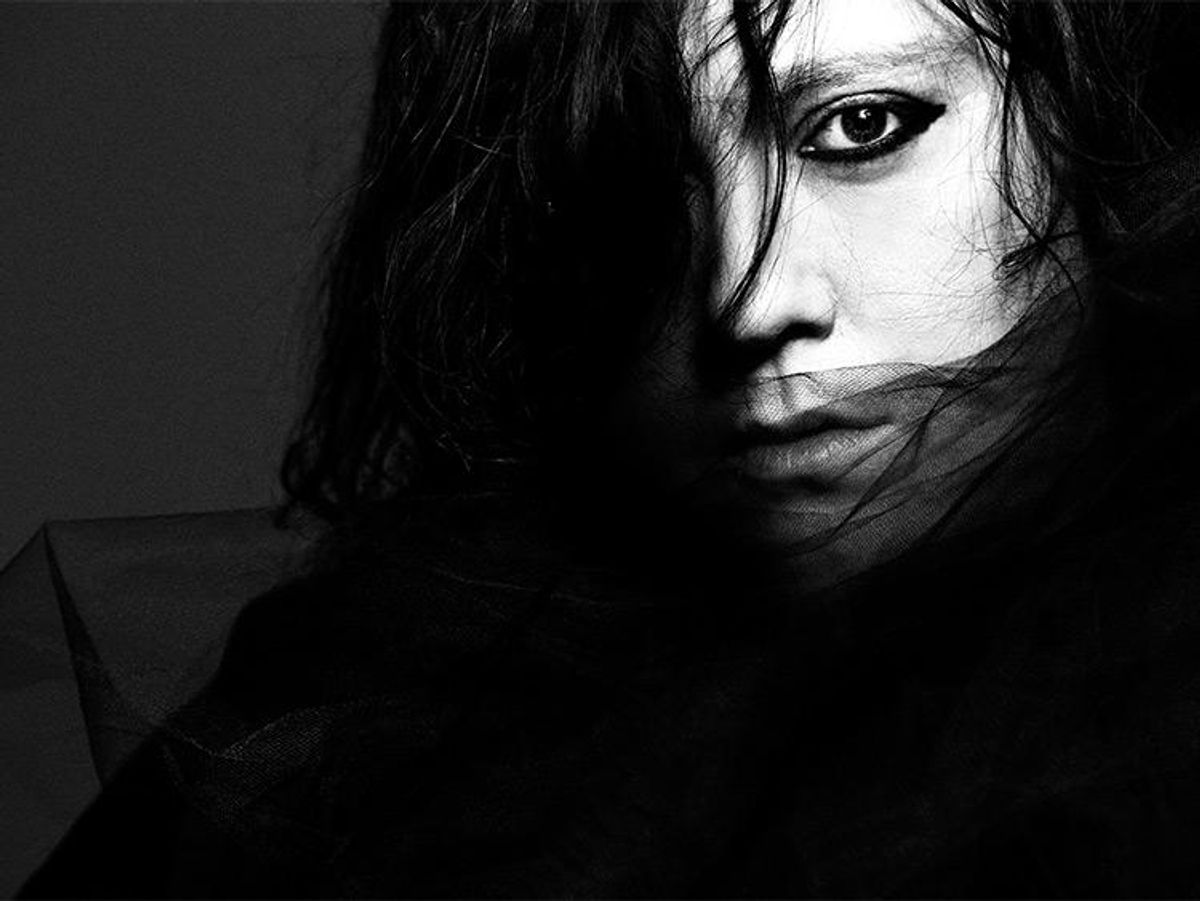Music
Must-Listen: Anohni's Rousing Protest Pop

The trans singer-songwriter has crafted an album of EDM to save the world.
May 03 2016 12:41 PM EST
May 14 2016 11:25 PM EST
By continuing to use our site, you agree to our Private Policy and Terms of Use.

The trans singer-songwriter has crafted an album of EDM to save the world.
Photograph byFrancesco Carrozzini. Courtesy ofTrunk Archive.
In January, the singer Anohni (formerly known as Antony) became the first transgender performer to receive an Oscar nomination. The news felt particularly salient after an unprecedented year for trans visibility. However, her achievement was undercut a month later when she discovered she wouldn't be singing "Manta Ray," her collaboration with J. Ralph for the documentary Racing Extinction, at the awards. Three of the other acts up for Best Original Song--Lady Gaga, Sam Smith, and the Weeknd -- were scheduled to perform, as was non-nominee Dave Grohl; Variety reported she was removed from the lineup due to "time constraints."
Anohni had planned to attend the ceremony, but then three days before the event she published an essay on Pitchfork explaining why she'd ultimately be skipping it. In her opinion, she hadn't been left out of the proceedings because she was transgender -- at least not directly -- but because, she wrote, she was "relatively unknown in the U.S., singing a song about ecocide, and that might not sell advertising space." The snub and the Academy's lack of communication with her opened a wound she's been nursing for decades, one inflicted by a capitalist system of "social oppression" that she'd refuse to support.
"I felt very defeated," she says, on the phone from Paris two weeks later. "I wasn't considered financially significant enough for them to tend to my well-being. It reiterated an ongoing theme in my mind, which is that in America, you have to pay to be respected. That's what Beyonce means at the end of 'Formation': My money is my best revenge."
This is how conversations with Anohni often unfold. A question elicits a response that coils its way through personal sentiments, race, class, patriarchy, and avant-queer history, one cri de coeur sparking the next, to the point where you wonder if she'll stop to catch her breath.
Photographed by Alice O'Malley at the Bronx Zoo orphanage. Cheetah handler: Kathleen LaMattina
She is not afraid to go to dark, uncomfortable places. In the early '90s, at the height of the AIDS crisis, the British-born, California-raised artist moved to New York City, where she walked the streets in a silk slip and combat boots with the words fuck off on her forehead. Shows with her drag collective, Blacklips, sometimes involved throwing buckets of blood at the audience.
Her latest studio album, Hopelessness, is her fifth, and the first since she adopted her new name and the feminine pronoun. Her thrilling, androgynous vocals have often been compared to those of Nina Simone, one of her idols, and in the same way that Simone's music turned its focus to civil rights in the 1960s, Anohni's work now addresses contemporary concerns: global warming, destructive consumerism, and drone warfare.
These weighty issues are at the crux of Hopelessness, and might have sunk the record were it not for Anohni's commanding delivery and its captivating electronic backdrop. Her project with Glaswegian producer Hudson Mohawke and experimental musician Oneohtrix Point Never, the LP marks a sonic departure for the singer, who until now has trafficked in mostly orchestral arrangements. "I found myself increasingly assigning all these vigorous ideas to these pastoral songs," Anohni says. "It felt a bit passive. I wanted to do something with more teeth."
To that end, the album is full of fuzzed-out synthesizers and core-shaking beats. "4 Degrees" is a maximalist, martial pop anthem tackling climate change. "Drone Bomb Me" is bolstered by mammoth bass drops (and a haunting video starring Naomi Campbell). "Obama"--an indictment of the president's foreign policy and our own naive expectations that he'd become "a savior figure" after taking office -- is surprisingly reminiscent of the distorted doomsday hip-hop we've come to expect from Drake or Kanye.
Where, then, lies the hope? Perhaps in the progress of LGBT rights. "I'm thrilled about the strides in trans visibility," Anohni says. Still, she warns, this isn't the endgame. "Sometimes I think America peddles a fantasy that identity politics is a silver bullet--that once you have your piece of the pie, all is well."
The singer recalls a conversation with a former teacher, the late author and activist Vito Russo. "He said, 'You can't be a serious advocate for gay rights without being a feminist. The oppression of gay people is built on the subjugation of the feminine.' And by extension I started thinking, You can't be a feminist without being an environmentalist, because subjugation of women is the basis of the subjugation of nature."
She continues: "It's like deck chairs on the Titanic. It's all very well to have your gay marriage, but what good will it do when you're floating away on the greenhouse tides? If you connect the dots between gay people and nature, I feel like we got a big job ahead of us."
Anohni's album, Hopelessness, will be released on May 6.
Like what you see here? Subscribe and be the first to receive the latest issue of OUT. Subscribe to print here and receive a complimentary digital subscription.